
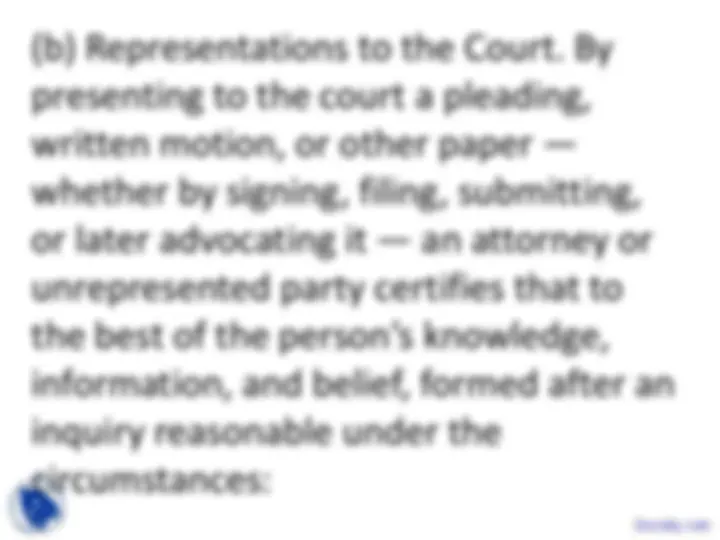
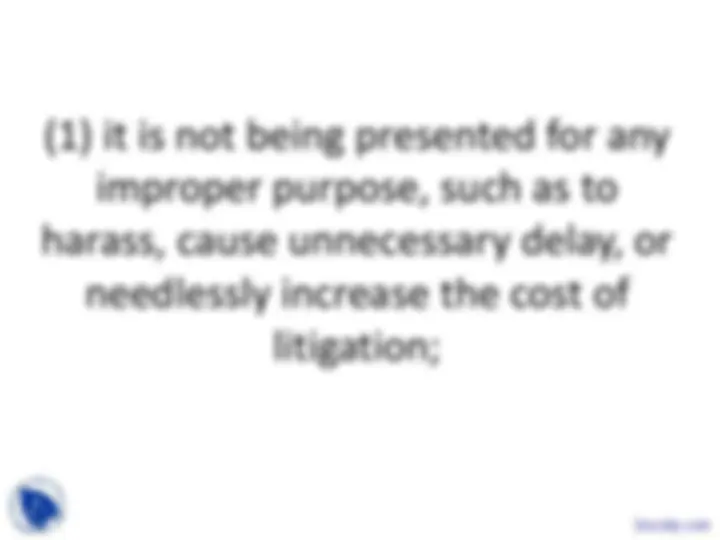
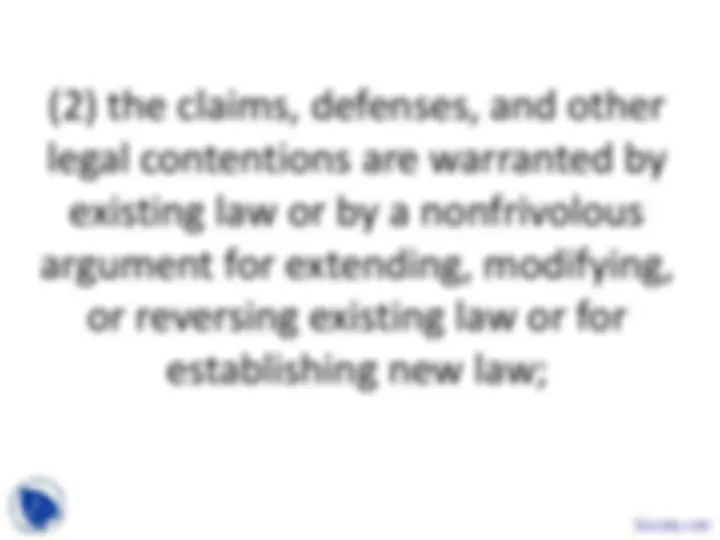
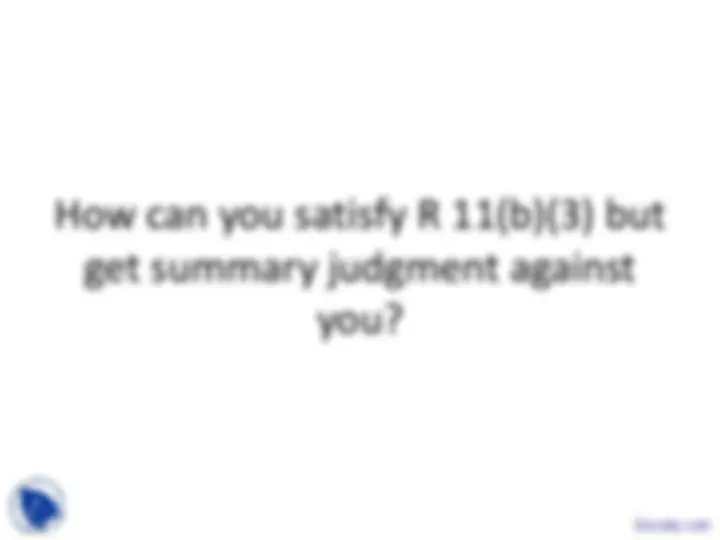
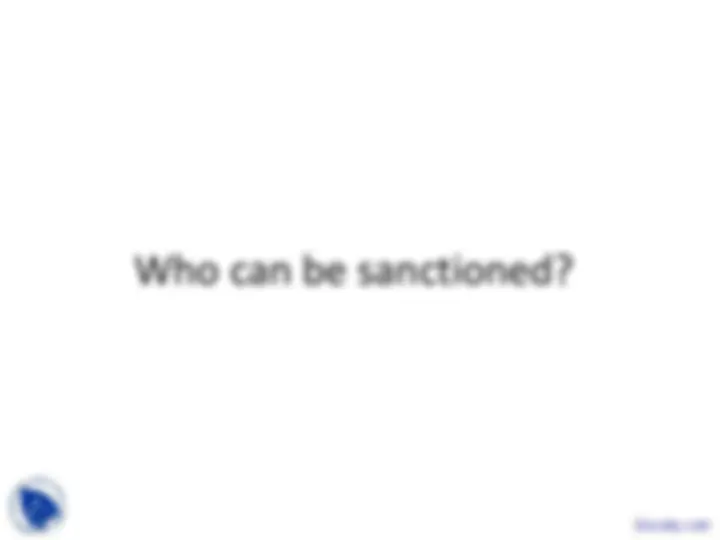
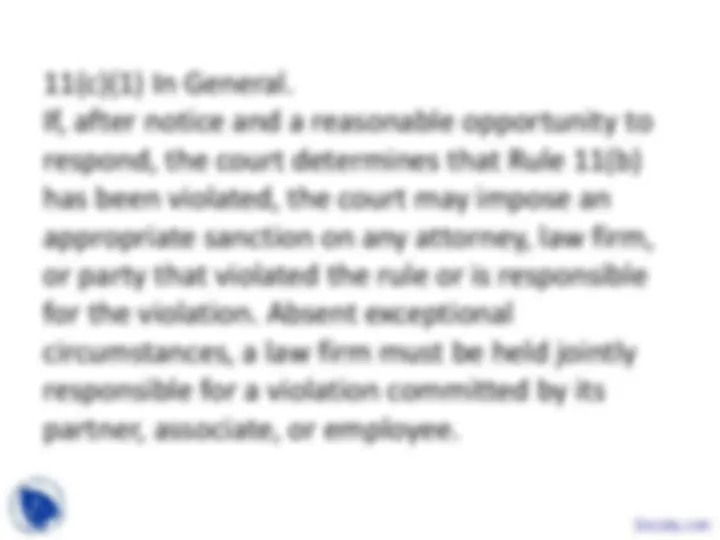
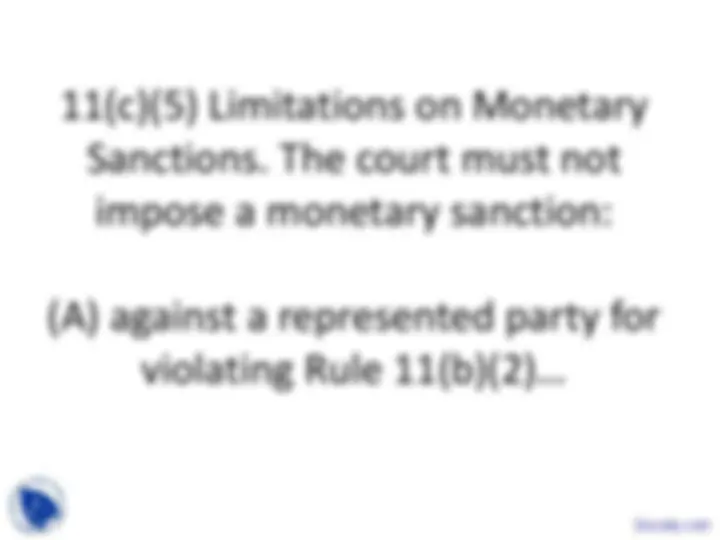
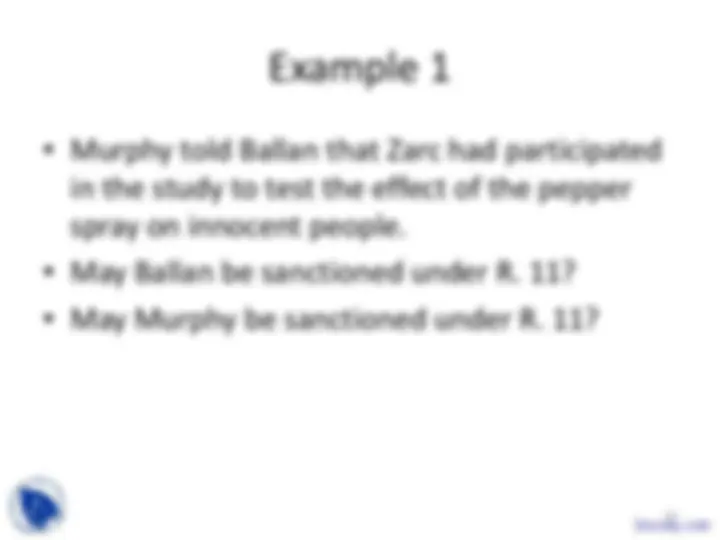
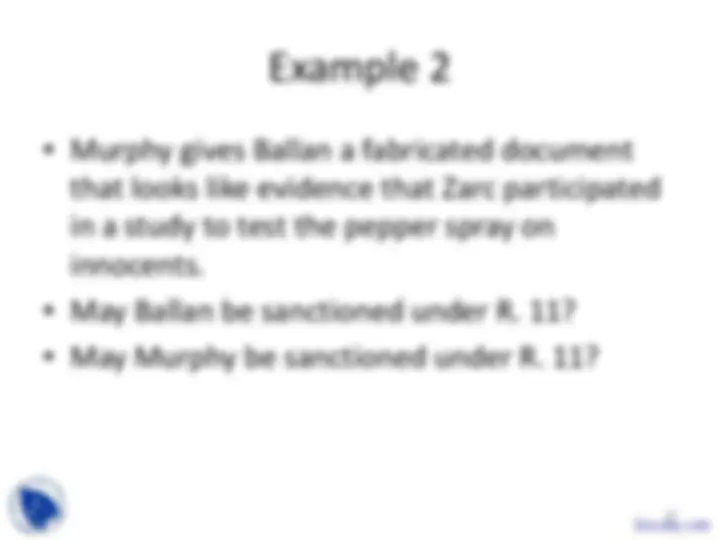
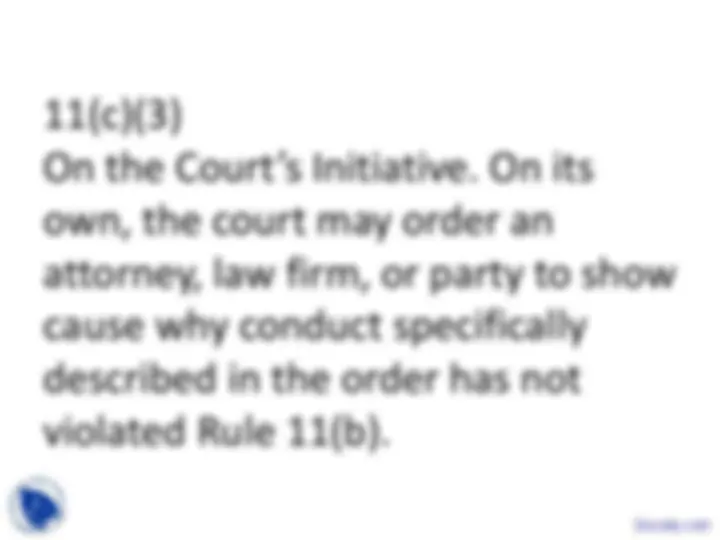
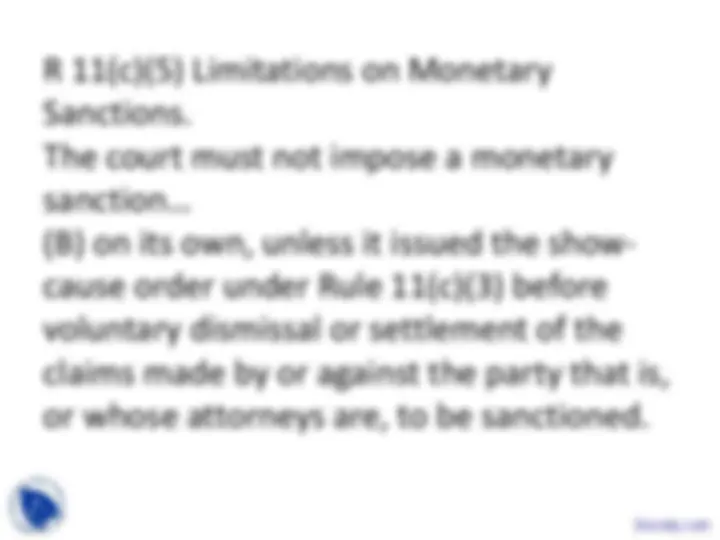

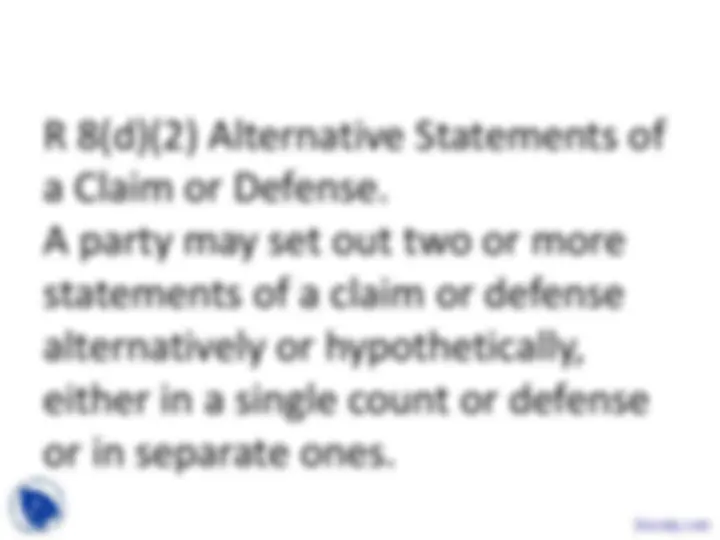
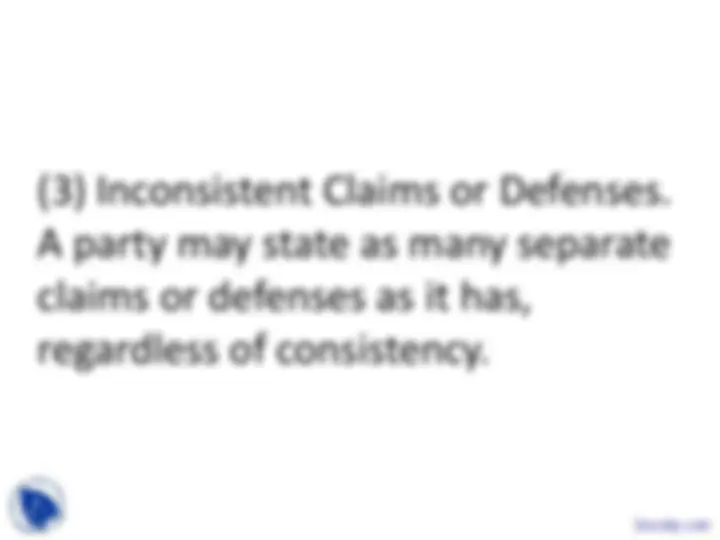
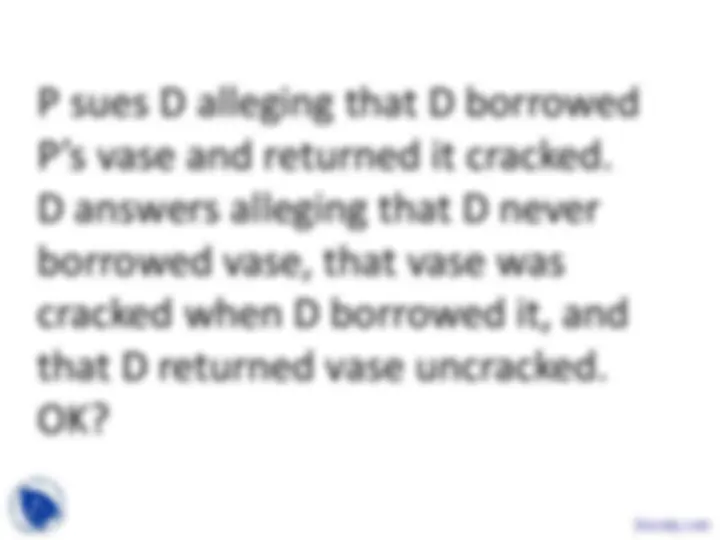
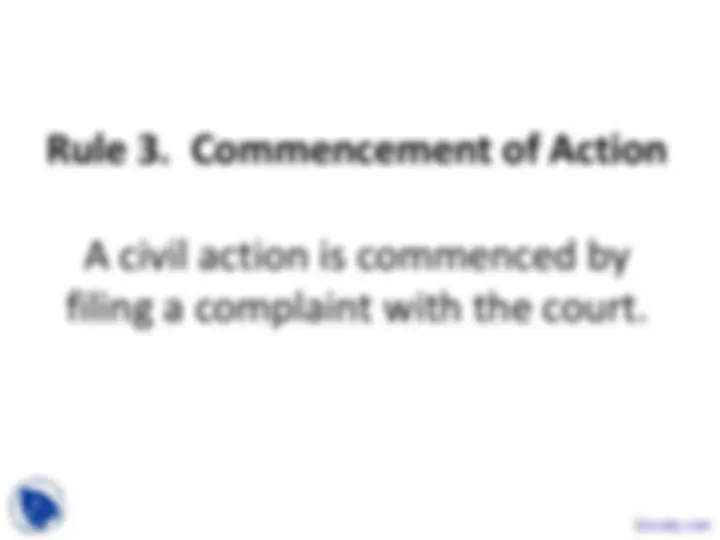
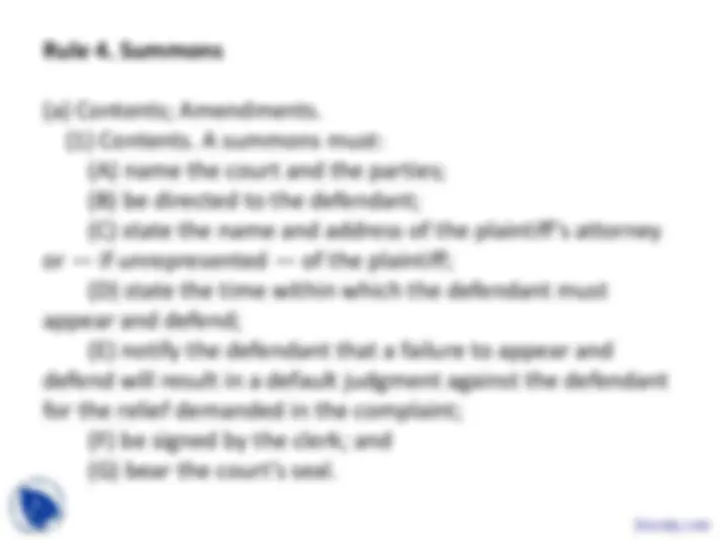



Study with the several resources on Docsity

Earn points by helping other students or get them with a premium plan


Prepare for your exams
Study with the several resources on Docsity

Earn points to download
Earn points by helping other students or get them with a premium plan
Community
Ask the community for help and clear up your study doubts
Discover the best universities in your country according to Docsity users
Free resources
Download our free guides on studying techniques, anxiety management strategies, and thesis advice from Docsity tutors
Rule 11 of the federal rules of civil procedure, which covers signing pleadings, motions, and other papers, making representations to the court, and imposing sanctions for violations. The rule includes provisions for signature requirements, certifications of truth and non-frivolousness, and sanctions for violations. Examples and related court cases are provided to illustrate the application of the rule.
Typology: Slides
1 / 26

This page cannot be seen from the preview
Don't miss anything!



















(a) Signature. Every pleading, written motion, and other paper must be signed by at least one attorney of record in the attorney’s name — or by a party personally if the party is unrepresented. The paper must state the signer’s address, e-mail address, and telephone number. Unless a rule or statute specifically states otherwise, a pleading need not be verified or accompanied by an affidavit. The court must strike an unsigned paper unless the omission is promptly corrected after being called to the attorney’s or party’s attention.
7
11(c)(1) In General. If, after notice and a reasonable opportunity to respond, the court determines that Rule 11(b) has been violated, the court may impose an appropriate sanction on any attorney, law firm, or party that violated the rule or is responsible for the violation. Absent exceptional circumstances, a law firm must be held jointly responsible for a violation committed by its partner, associate, or employee.
11(c)(4) A sanction imposed under this rule must be limited to what suffices to deter repetition of the conduct or comparable conduct by others similarly situated. The sanction may include nonmonetary directives; an order to pay a penalty into court; or, if imposed on motion and warranted for effective deterrence, an order directing payment to the movant of part or all of the reasonable attorney’s fees and other expenses directly resulting from the violation.
14
11(c)(2) Motion for Sanctions. A motion for sanctions must be made separately from any other motion and must describe the specific conduct that allegedly violates Rule 11(b). The motion must be served under Rule 5, but it must not be filed or be presented to the court if the challenged paper, claim, defense, contention, or denial is withdrawn or appropriately corrected within 21 days after service or within another time the court sets.